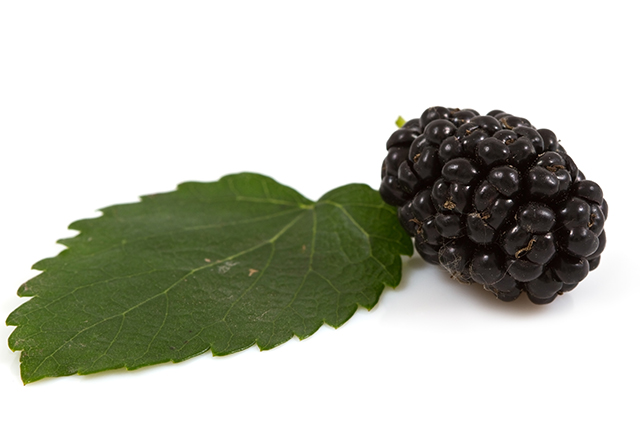Mulberry leaves can be used to keep diabetes symptoms at bay

(Natural News) Mulberry is a plant traditionally cultivated in Korea, China, and Japan for medicine, particularly for treating obesity and diabetes. In a study published in the journal BMC Complementary and Alternative Medicine, researchers at Chungnam National University in South Korea found that bioconverted mulberry leaf extract is an effective herbal medicine for improving the symptoms of diabetes.
Bioconversion is a technique used to produce active ingredients from natural products using microorganisms or enzymes. In the study, the researchers prepared bioconverted mulberry leaf extract using Viscozyme L, which is a multi-enzyme complex with a powerful pectolytic activity and a wide range of carbohydrases. They looked at the effect of bioconverted mulberry leaf extract in managing diabetes in cell and animal models.
To do so, they treated insulin-sensitive cells, insulin-secreting pancreatic beta-cells, and obese diabetic mice with either the bioconverted mulberry leaf extract or unaltered mulberry leaf extract for seven weeks. They induced obesity and diabetes in mice by giving them streptozotocin, nicotinamide, and a high-fat diet.
The results showed that in cells, bioconverted mulberry leaf increased the glucose uptake of the insulin-sensitive cells and increased glucose-stimulated insulin secretion in pancreatic beta-cells. In the mice model, both bioconverted and unaltered mulberry leaf extracts decreased the fasting blood sugar levels of diabetic mice.
However, compared to unaltered mulberry leaf extract, treatment with bioconverted mulberry leaf extract in diabetic mice resulted in better glucose tolerance and lower blood concentration of glycated hemoglobin (HbA1c) levels. In addition, bioconverted mulberry leaf extract treatment led to increased plasma insulin. These effects led to significant improvements in insulin resistance and insulin sensitivity.
 | Discover how to prevent and reverse heart disease (and other cardio related events) with this free ebook: Written by popular Natural News writer Vicki Batt, this book includes everything you need to know about preventing heart disease, reversing hypertension, and nurturing your cardiac health without medication. Learn More. |
Overall, the findings of the study suggested that bioconverted mulberry leaf extract is superior to unaltered mulberry leaf extract in terms of managing diabetes as it has high concentrations of trans-caffeic acid and syringaldehyde. This also indicated that bioconversion can be used as a useful tool for increasing the active ingredients in mulberry leaf extract.
Mulberry leaf also helps control blood sugar, triglyceride, and cholesterol levels
Another animal study, which was published in the journal Food and Nutrition, adds to the scientific evidence that supports the ability of mulberry leaf extract to help with blood sugar control. In this study, researchers from Chonbuk National University Medical School in South Korea discovered that mulberry leaf not only lowers blood sugar levels but also reduces triglyceride and total cholesterol levels.
This study looked at how mulberry leaf extract may affect glucose uptake in skeletal muscle cells, given that skeletal muscle is a primary site of whole-body glucose uptake and utilization. To do this, the researchers examined insulin responsiveness in both the liver and skeletal muscle. They treated mice with 50 milligrams per kilogram (mg/kg), 100 mg/kg, or 250 mg/kg mulberry leaf extract for eight weeks. They prepared the extract using dried mulberry leaves.
In addition, the researchers treated another group of mice with metformin, a common anti-diabetic drug. After the treatment period, the mice were anesthetized so the researchers could retrieve and examine the liver and skeletal muscles.
They found that mice treated with 100 and 250 of mulberry leaf extract exhibited significant increases in phosphorylated forms of several proteins. This indicated that the extract likely boosts glucose disposal in skeletal muscle. Taken together, the researchers concluded that their findings suggested that mulberry leaf extract could potentially be used for the management of Type 2 diabetes. (Related: Medicinal properties of mulberry may prove effective in treating diabetes mellitus.)
For more information about natural medicines that can help you manage diabetes, visit PreventDiabetes.news.
Sources include:

